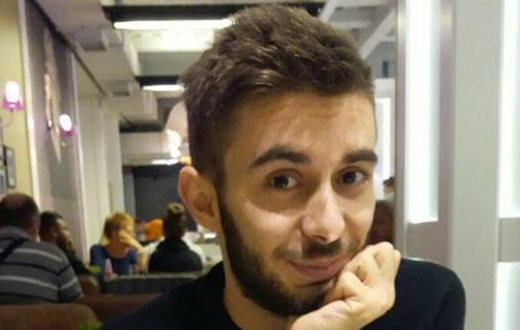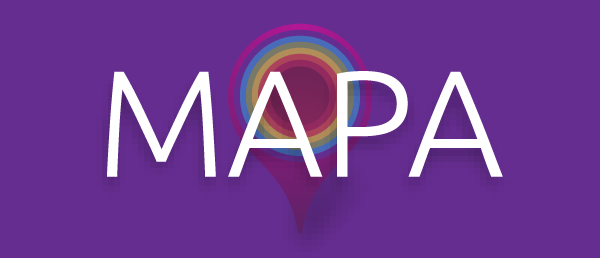Author: Mirza Halilčević

A famous theater and movie actress once said in an interview, explaining and remembering how she left the Balkans, that in the early 1990s at the beginning of the war, playing her last play of the decade in that area, she knew it was the end. And that that was it. That she was defeated and that she was a minority.
Is it possible to live among people who, after a while, we stop knowing and recognizing? Among people to whom we are connected by fewer and fewer common ideas? When cities stop serving people and become an unrecognizable target of conquest? That is the logic of war, not necessarily an armed one. That is also the principle of every cultivated intolerance that aims at creating conflict and cleansing.
Immediately after the announcement of the first Bosnian and Herzegovinian Pride Parade, someone hung up posters around Sarajevo with the Parade logo crossed through and the motto – “I want to get out” – modified by adding “of Bosnia and Herzegovina” to it. It was the first time after my arrival in Sarajevo that I was completely unprepared for the publicly propagated idea of cleansing a society. I remembered the taxi driver babbling on about how hijam and releasing stale blood actually cleanses the body. Why one is an association to the other, I don't even know.
Anyone who decides to go to a place that gives them better chances and opportunities for development has the right to do so, but the idea of generating intolerance towards anyone is an issue that needs to be problematized. We must not allow the symptomaticity and evident selective targeting of individuals and groups for whom isolation is invoked to go unnoticed.
When a person is in the place they currently want to be, it is difficult for them to think about migrations or the place they left. It is like a fulfilled need that is currently no longer being reconsidered. Every return to the past and digging through the reasons for departure requires emotional effort.
However, it is no coincidence that while writing this article, I found myself in the village I came from, which I had left a few years ago in search of a better life. It was clear to me that one part of me was still melancholy-bound to the life that swirled around my parents’ house. On the other hand, the only reason I could be so sincerely melancholic is because I knew I was attached, but not belonging to that world, and because I had another place to go to.
The message carried by the poster with the Pride Parade logo crossed through is explicit and clear. Still, I didn't leave. Very likely because I don’t know and don’t even have anywhere to go. And maybe I just don’t even want to. However, no one openly tells workers to leave Bosnia and Herzegovina, and yet they leave. Things are never black or white. No one goes anywhere just for money. Material security and some form of financial certainty are important only to support development, exploration of one’s own authenticity and periodic spontaneity. In order for a person to discover him or herself, in today's world, first of all, they must be freed from the material calculation that stands in the way of vulnerability and healthy relationships that are a source of happiness and a sense of connection – with themselves and others.
It is natural for man to strive to satisfy his needs and sense of security. It is probably natural in some way and in some form for people to compensate for the feeling of security through belonging – to a nation, society, religious community, party… Belonging creates an imaginary sense of care. Well, the feeling of security is very likely to migrate and look for where it can fulfill and appease, which, at the end of the day, may make us all migrants.
I think things are actually very simple. An unfulfilled sense of security constantly reminds us of what we are all ready to do to feel protected in the moment. It is, in fact, much easier to wonder at migrants who find themselves in Bosnia and Herzegovina and their willingness to protect themselves, while unfortunately they are often left to fend for themselves, than to think about how much a Bosnian person living in Vienna has integrated into Austrian society.
In broad daylight in the center of the city, a man sitting in a car with modern turbofolk music blasting from it said to me: “What are you looking at?” Yes, I was looking. I thought that was the point and that anyone who behaves like that actually wants to attract attention in public.
The only place I can still migrate to is inside myself. To my small space of freedom, which I conquered by not belonging to either the village or the party. Fortunately, I still have the emotional capacity and ability to connect and let noble people surprise me. I remain standing still, even though I migrate every day and retreat from the outside into my inner world looking for the same thing as any other individual – a little security and freedom.
This text was created in collaboration with partners from the Schüler Helfen Leben organization in Berlin.





